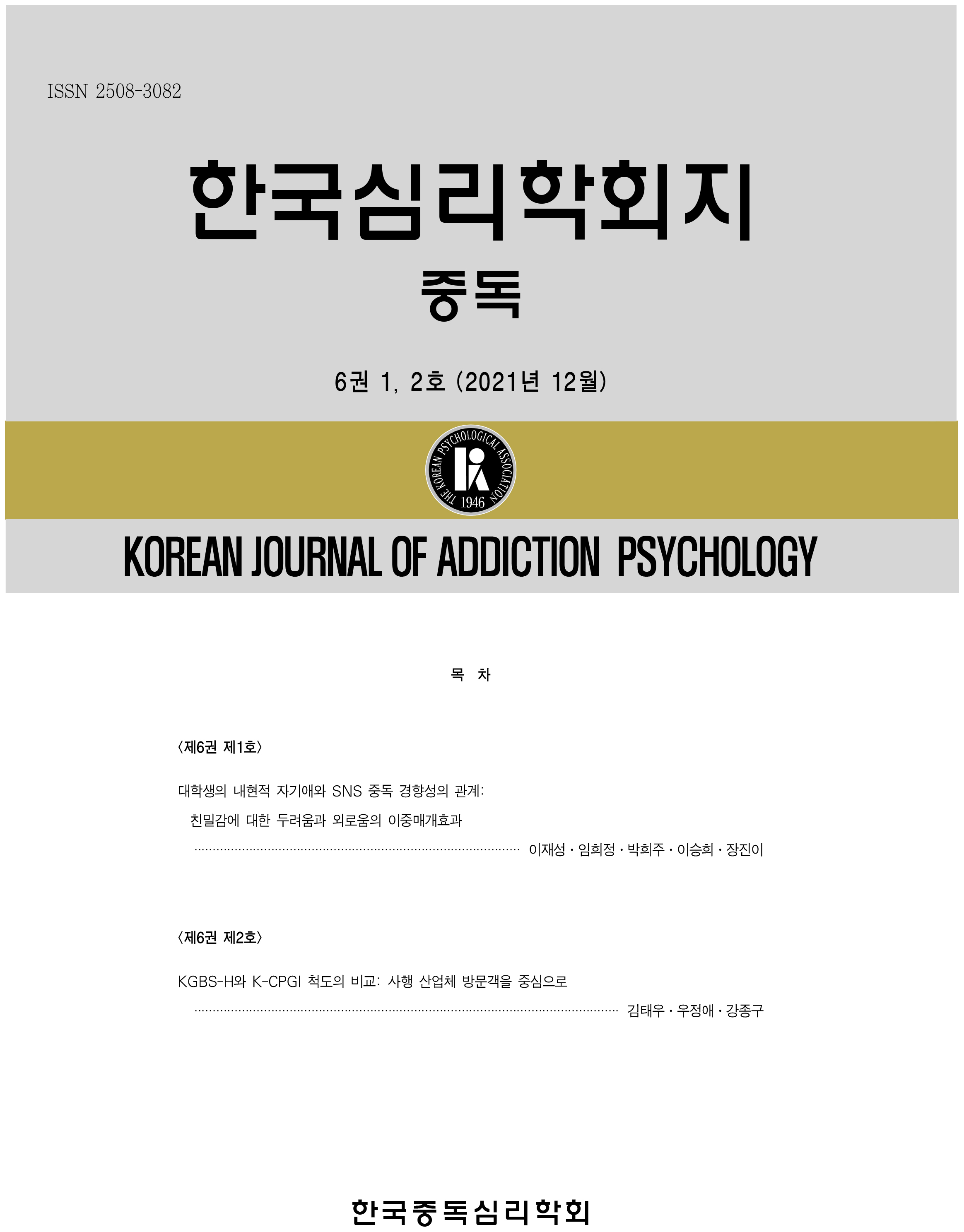Korean Journal of Addiction Psychology
- Log In/Sign Up
- P-ISSN2508-3082
 ISSN : 2508-3082
ISSN : 2508-3082
Vol.4 No.2
Abstract
The purpose of this study is to investigate whether the actual self awareness intervention is effective in decreasing binge eating behavior of university students. The subjects were two university students. They were selected by three criteria: 1) Report target behavior more than twice a week; 2) Targeted behavior appears for psychological reasons rather than irregular eating habits; 3) Agree to participate in research. The intervention of the actual self awareness promotion used in this study was designed to explore and recognize the actual self in the aspect of emotion and need experienced at that time. The research design is based on the ABAB design. During the baseline A1 and A2 were measured online survey every evening without any special intervention for 7 days each. B1 and B2 were conducted 31 times(9 times in face-to-face interventions and 22 times in simple online interventions) for the actual self awareness promotion intervention developed in this study for 18 days and 13 days respectively and the online survey was measured every evening. Visual analysis, both participants showed a tendency to decrease the frequency of binge eating behavior, loss of control, intention, craving, and negative emotion level during the interventions. The average score changes of each variable were as follows: binge eating behavior 'frequency' decreased by 63% and 16%, 'loss of control' decreased by 64% and 23%, 'intention' decreased by 28%, 24%, 'craving' decreased by 69% and 14%, and 'negative emotion' decreased by 74% and 42%, respectively. This study is meaningful in that it developed the Actual self awareness promotion intervention that can be used in counseling field, which suggests that it can help improve the problem of the loss of control including binge eating behavior and various mental health problem.
Abstract
The purpose of this study is to examine the relationship between mental toughness and positive psychological factors for mothers who got a media addicted children. Based on theoretical basis of positive psychological tendencies associated with mental toughness, select variables such as the tendency of psychological well-being, subjective well-being, resilience, optimism, and hope, examined the correlation and influence. As a result, it was found that the most influential positive psychological factors in promoting mental toughness were 'subjective welfare', 'positive expectations', 'self-acceptance', 'life purpose', 'hope' and 'resilience'. In this discussion, we discussed how five positive psychological tendencies can be used as a positive psychological program contents element to enhance the mental toughness for mothers of media addicted children.